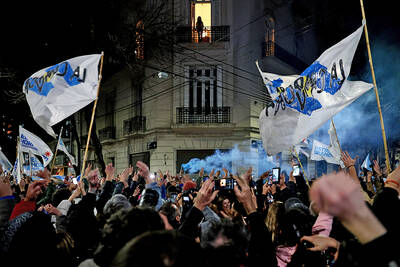Venezuela announced Thursday the purchase of three Chinese military radar systems under President Hugo Chavez' military modernization plans, which have prompted US criticism.
Venezuela purchased the three-dimensional, long-range JYL-1 radar systems for command of military air operations from China's state-owned Electronics Import and Export Corporation, Venezuela's state news agency ABN said.
The deal was signed by Venezuelan Defense Minister Orlando Maniglia and Qu Huimin, the vice president of the Chinese company, who said that in 18 months new purchases may be made.
The deal includes spare parts, technical and operational training.
Chavez has purchased 15 helicopters and 100,000 Kalashnikov rifles from Russia, four ships and 10 transport planes from Spain, among other items.
Washington has said that Chavez' rearming threatens Latin American democracies, especially neighboring Colombia, if the weapons wind up in the hands of rebels, paramilitary death squads and drug dealers fighting there.
Meanwhile, Chavez strongly denied US charges that he is supporting Colombian rebels or trying to destabilize other South American countries, accusing the US of spreading lies and of being a "terrorist state."
Chavez lashed out at what he calls the "US empire" Thursday night as he responded to statements by State Department officials who accused Venezuela of backing Colombian guerrillas with weapons and funding "anti-democratic groups" in Bolivia, Ecuador and elsewhere.
"They accuse us of buying arms to give them to the guerrillas -- no, they're for our troops," Chavez said. "They are a terrorist state, but they accuse us of being terrorists."
Venezuela has signed a deal to buy 100,000 Kalashnikov rifles from Russia, and Chavez said the guns are due to arrive soon.
High-ranking US officials also have expressed alarm about Chavez's plans to buy military helicopters from Russia, his virtual domination of Venezuela's political system and his increasingly close ties to Cuban leader Fidel Castro.
In some of his sharpest comments in months, Chavez accused Washington of stepping up a campaign of lies to try to isolate his government.
Chavez, a former army officer elected in 1998 on pledges of leading a "peaceful revolution" for the poor, often accuses the US government of plotting against him to try to take control of the country's vast oil reserves.

LANDMARK CASE: ‘Every night we were dragged to US soldiers and sexually abused. Every week we were forced to undergo venereal disease tests,’ a victim said More than 100 South Korean women who were forced to work as prostitutes for US soldiers stationed in the country have filed a landmark lawsuit accusing Washington of abuse, their lawyers said yesterday. Historians and activists say tens of thousands of South Korean women worked for state-sanctioned brothels from the 1950s to 1980s, serving US troops stationed in country to protect the South from North Korea. In 2022, South Korea’s top court ruled that the government had illegally “established, managed and operated” such brothels for the US military, ordering it to pay about 120 plaintiffs compensation. Last week, 117 victims

China on Monday announced its first ever sanctions against an individual Japanese lawmaker, targeting China-born Hei Seki for “spreading fallacies” on issues such as Taiwan, Hong Kong and disputed islands, prompting a protest from Tokyo. Beijing has an ongoing spat with Tokyo over islands in the East China Sea claimed by both countries, and considers foreign criticism on sensitive political topics to be acts of interference. Seki, a naturalised Japanese citizen, “spread false information, colluded with Japanese anti-China forces, and wantonly attacked and smeared China”, foreign ministry spokesman Lin Jian told reporters on Monday. “For his own selfish interests, (Seki)

Argentine President Javier Milei on Sunday vowed to “accelerate” his libertarian reforms after a crushing defeat in Buenos Aires provincial elections. The 54-year-old economist has slashed public spending, dismissed tens of thousands of public employees and led a major deregulation drive since taking office in December 2023. He acknowledged his party’s “clear defeat” by the center-left Peronist movement in the elections to the legislature of Buenos Aires province, the country’s economic powerhouse. A deflated-sounding Milei admitted to unspecified “mistakes” which he vowed to “correct,” but said he would not be swayed “one millimeter” from his reform agenda. “We will deepen and accelerate it,” he

‘HYANGDO’: A South Korean lawmaker said there was no credible evidence to support rumors that Kim Jong-un has a son with a disability or who is studying abroad South Korea’s spy agency yesterday said that North Korean leader Kim Jong-un’s daughter, Kim Ju-ae, who last week accompanied him on a high-profile visit to Beijing, is understood to be his recognized successor. The teenager drew global attention when she made her first official overseas trip with her father, as he met with Chinese President Xi Jinping (習近平) and Russian President Vladimir Putin. Analysts have long seen her as Kim’s likely successor, although some have suggested she has an older brother who is being secretly groomed as the next leader. The South Korean National Intelligence Service (NIS) “assesses that she [Kim Ju-ae]